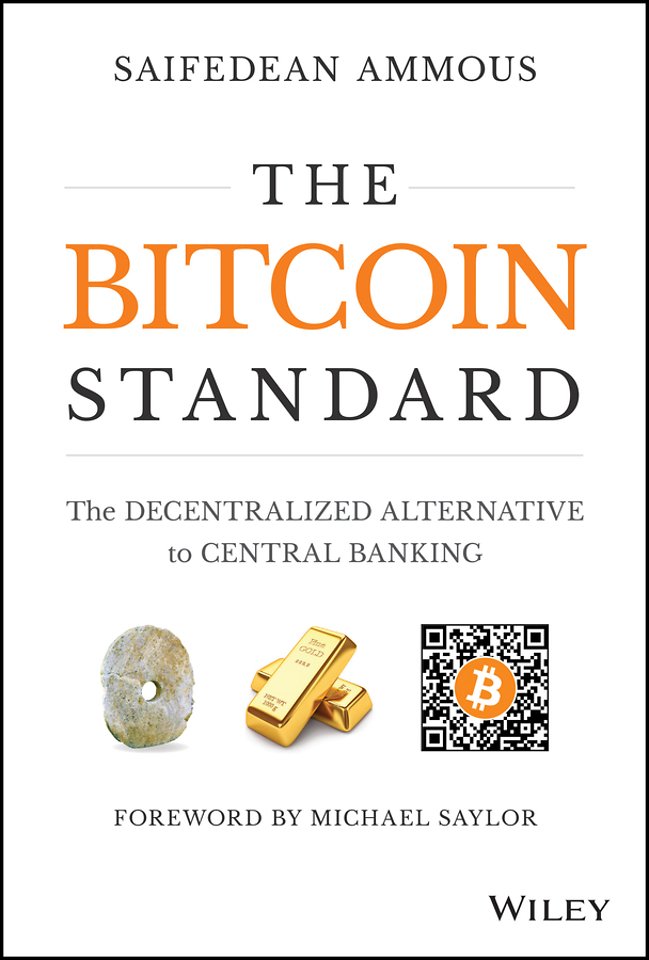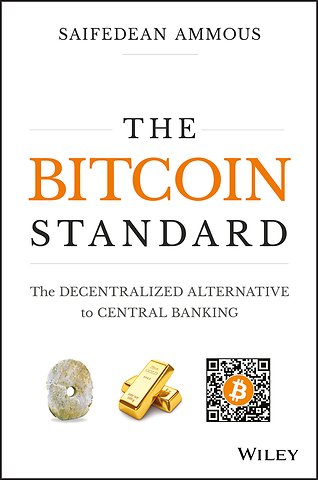The Bitcoin Standard
The Decentralized Alternative to Central Banking
Gebonden Engels 2018 1e druk 9781119473862Samenvatting
When a pseudonymous programmer introduced “a new electronic cash system that’s fully peer-to-peer, with no trusted third party” to a small online mailing list in 2008, very few paid attention.
Ten years later, and against all odds, this upstart autonomous decentralized software offers an unstoppable and globally-accessible hard money alternative to modern central banks. The Bitcoin Standard analyzes the historical context to the rise of Bitcoin, the economic properties that have allowed it to grow quickly, and its likely economic, political, and social implications.
While Bitcoin is a new invention of the digital age, the problem it purports to solve is as old as human society itself: transferring value across time and space. Ammous takes the reader on an engaging journey through the history of technologies performing the functions of money, from primitive systems of trading limestones and seashells, to metals, coins, the gold standard, and modern government debt.
Exploring what gave these technologies their monetary role, and how most lost it, provides the reader with a good idea of what makes for sound money, and sets the stage for an economic discussion of its consequences for individual and societal future-orientation, capital accumulation, trade, peace, culture, and art.
Compellingly, Ammous shows that it is no coincidence that the loftiest achievements of humanity have come in societies enjoying the benefits of sound monetary regimes, nor is it coincidental that monetary collapse has usually accompanied civilizational collapse.
Trefwoorden
bitcoin geld hard money economie monetaire geschiedenis goudstandaard blockchain centrale banken stock-to-flow ratio kapitaalaccumulatie tijdsvoorkeur monetair beleid soevereiniteit deflatie inflatie decentralisatie vrijemarkteconomie schaarsheid cryptografie monetaire metals Oostenrijkse school monetaire concurrentie digitaal goud peer-to-peer proof of work sound money vertrouwensloos systeem monetair nationalisme fiat money mijnbouw (mining)
Trefwoorden
Specificaties
Lezersrecensies
Inhoudsopgave
U kunt van deze inhoudsopgave een PDF downloaden
List of Tables 6
Prologue 7
Chapter 1: Money 10
Chapter 2: Primitive Moneys 18
Chapter 3: Monetary Metals 23
Why Gold? 24
Roman Golden Age and Decline 30
Byzantium and the Bezant 32
The Renaissance 33
La Belle Époque 38
Chapter 4: Government Money 43
Monetary Nationalism and the End of the Free World 45
The Interwar Era 49
World War II and Bretton Woods 54
Government money s track record 60
Chapter 5: Digital Money 72
Bitcoin as Digital Cash 73
Supply, Value and Transactions 81
Appendix to Chapter 5 94
Chapter 6: Sound Money and Time Preference 97
Monetary Inflation 103
Saving and Capital Accumulation 112
Innovations: Zero to One vs One to Many 117
Artistic Flourishing 120
Chapter 7: Money as Capitalism s Information System 126
Capital Market Socialism 129
Business Cycles and Financial Crises 133
Sound Basis for Trade 144
Chapter 8: Sound Money and Individual Freedom 150
Should Government Manage the Money Supply? 150
Unsound Money and Perpetual War 158
Limited vs Omnipotent Government 161
The Bezzle 166
Chapter 9: What Is Bitcoin Good For? 177
Store of Value 177
Individual Sovereignty 183
International and Online Settlement 186
Global Unit of Account 191
Chapter 10: Bitcoin Questions 196
Mining and Proof–of–work 196
Out of Control: Why nobody can change Bitcoin 200
Antifragility 207
Can Bitcoin Scale? 208
Is Bitcoin For Criminals? 215
How to Kill Bitcoin: A Beginners Guide 217
Altcoins 226
Blockchain Technology 230
References 244
Anderen die dit boek kochten, kochten ook
Rubrieken
- advisering
- algemeen management
- coaching en trainen
- communicatie en media
- economie
- financieel management
- inkoop en logistiek
- internet en social media
- it-management / ict
- juridisch
- leiderschap
- marketing
- mens en maatschappij
- non-profit
- ondernemen
- organisatiekunde
- personal finance
- personeelsmanagement
- persoonlijke effectiviteit
- projectmanagement
- psychologie
- reclame en verkoop
- strategisch management
- verandermanagement
- werk en loopbaan








